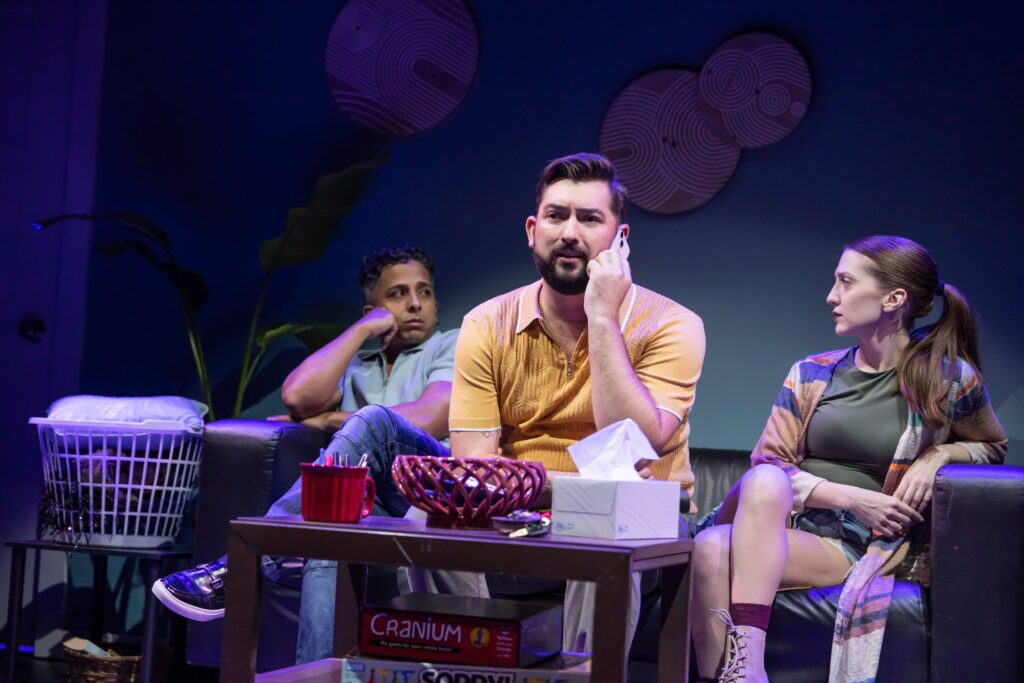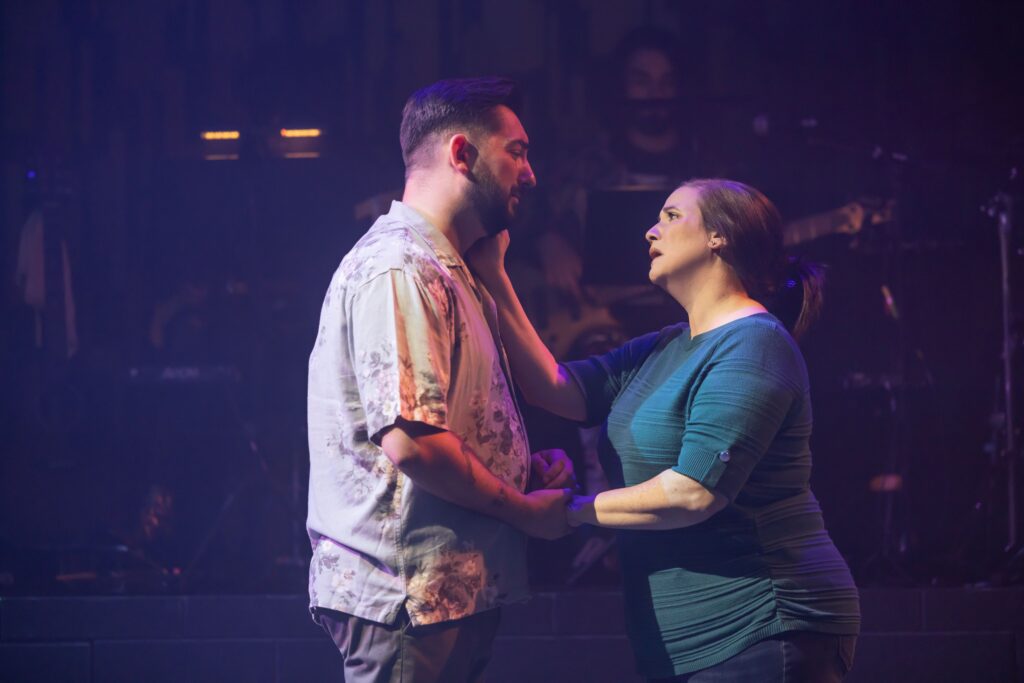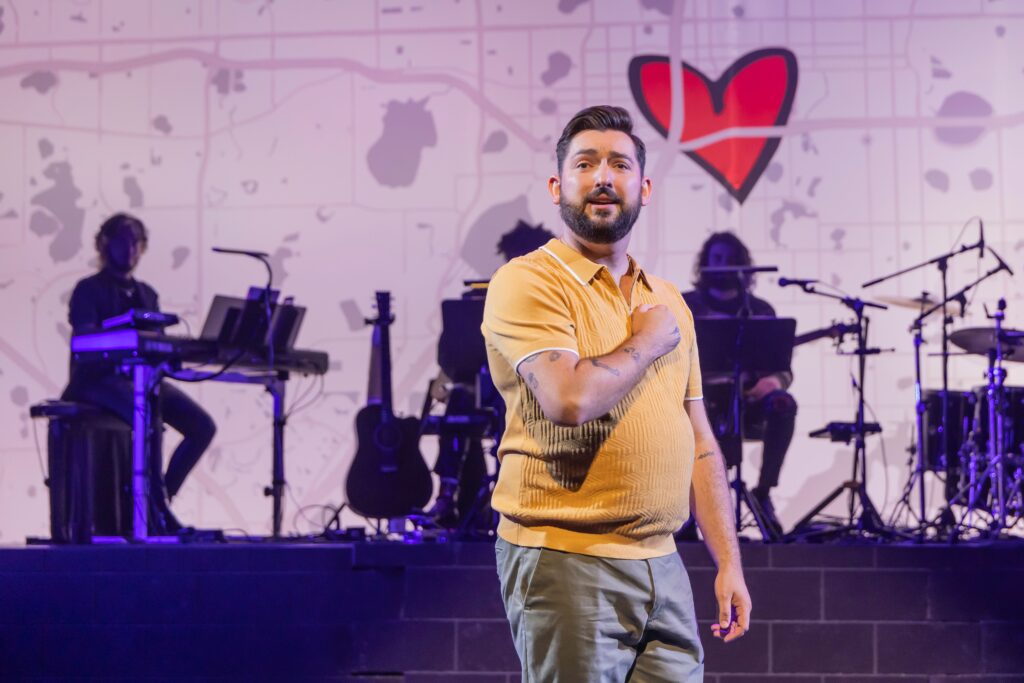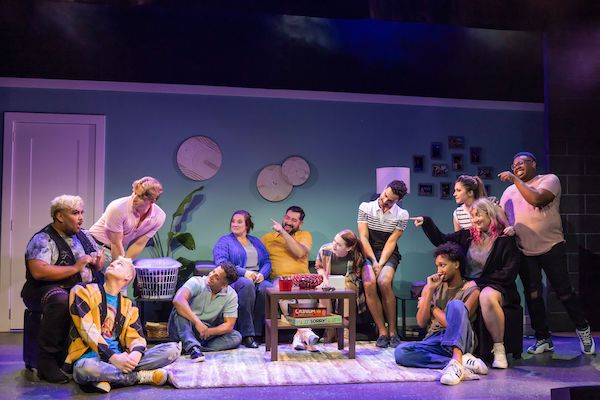One August night, inside the Alice Griffin Jewel Box Theatre at Manhattan’s Pershing Square Signature Center, a full audience sits under blue and yellow stage lights awaiting the start of the off-Broadway musical From Here. A rainbow backdrop adorns the stage, and eventually, the music starts…
Art Imitates Life
Written and directed by Orlando-based Donald Rupe, From Here centers on a young gay man, Daniel, as he navigates the evolution of various relationships—and how those connections are impacted by the 2016 Pulse nightclub shooting.
Rupe, co-founder and artistic director of Orlando’s Renaissance Theatre Company–which produced From Here in Orlando, then New York–told Tagg Magazine that he’d always wanted to write about his “unusually large and loving friend group” and he couldn’t write about his friends without incorporating how the Pulse tragedy changed their bond.

The Beauty of Connection
“It really did…shift the depth of our love for one another,” said Rupe. “[So, the show is] about a group of people in Orlando who found deeper love for one another in a moment of a communities’ shared response to tragedy.”
That friendship theme is deftly woven into scenes of house parties, nights out, and more. There’s all the playful teasing, giddy gossip, heart-to-hearts, and brutally honest fighting that comes with meaningful friendships. The cast effortlessly conveyed this intimacy, which isn’t surprising since they all came to New York together from Orlando.
“There’s a lot of love on that stage,” said Blake Aburn, who played Daniel. “We experienced a whole journey together.”
Along with friendship, there’s an arc of Daniel exploring romance—and all the painful breakups, jealousy, butterflies, and new love that such pursuits entail.
And yet, instead of friendship or romance as the first relationship presented, the show opens with Daniel repeatedly calling his mother, leaving a desperate message seeking to end their apparent estrangement. Rupe was inspired to include this mother-son dynamic by Pulse’s impact on parents. He said while some parents doubled down on cruel rejection of their children after Pulse, he wanted to show that some parents were instead jarred into becoming accepting.
“They saw this horrific thing and that changed how they felt about their kids,” said Rupe.

Building From Trauma
That so many types of relationships are thematically highlighted in the show might make it hard for a viewer to focus on the story’s main heartbeat. However, the throughline is in the title, From Here, with two meanings presented: “Where do we go from here?” and “We are all from here.” As Rupe explained, the latter suggests that in relation to Pulse, everyone is from Orlando, and more broadly, that everyone is human.
Aburn described how all the meanings of “from here” ultimately collide.
“‘Where do we go from here’ turns into ‘we’re all from here,’” said Aburn. “Because at the beginning…everyone is kind of at a loss [about where to go from current circumstances]. Then we’re brought together. The community comes together.”
This message is delivered with impressive writing and performances, with Aburn expertly leading the way. Also impressive: the cast and creators continuously adapted the show—e.g., tweaking it for the New York audience to weed out excessively Orlando-specific elements, and constantly updating pop culture jokes to keep up with the latest headlines.
From Here’s pacing is a little uneven, with a slow burn set-up giving way to a rapid-turn climax, and exposition where one might want more depiction. Additionally, one ballad, though sung with vocal brilliance by the actor (Omar Cardona), feels misplaced and underwritten. But on the whole, From Here is achingly beautiful. A viewer would be hard pressed to not tear up at all the heart-wrenching parts and laugh at all the well-placed moments of levity.

Where We Go From Here
Rupe said that seeing the NYC run of From Here was surreal. He never expected it to become an off-Broadway production—and his first-ever NYC show–so he isn’t sure what’s next for the musical.
“I know it’s impacted people in the way that we hoped; we told a story that was important to us,” said Rupe. “[But] I don’t have any dreams for after this—this was the dream.”
However, a cast album is pending, and Rupe’s open to other companies staging it around the country. Aburn, too, is more than satisfied with the show’s success to date.
“I am hopeful [the New York audience] got a taste of what love for a community is about, and what love for my home is about,” said Aburn. “And I would hope they walked away feeling hopeful for the future and…for their communities.”

